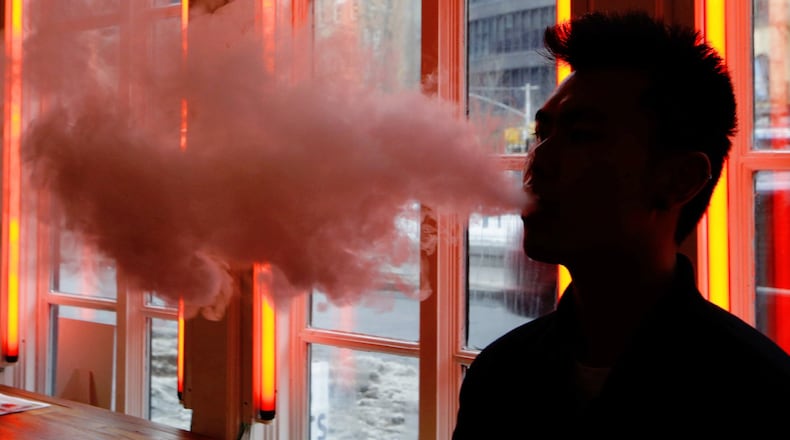Scientists know that nicotine and children don’t mix: The chemical can cause anything from mild illness to death, or problems with brain development. Most Americans know, too, according to a new study.
But those who don’t may be the ones who need to most. They’re more likely to be smokers.
The question’s importance has exploded recently along with the rise of e-cigarettes such as Juul. Although it’s called “vaping,” the vapor isn’t pure water: It has high levels of nicotine in it.
The e-cigarette manufacturers say they do that to attract smokers away from tobacco cigarettes.
According to the study, released by Georgia State University’s School of Public Health, 83 percent of adults replied that nicotine is “definitely harmful” to children. But among those who didn’t, more were likely to be smokers.
“Adults who use tobacco products were significantly less likely to state that nicotine is harmful to children compared with adults who did not use tobacco products,” the study’s authors found.
Those waffling on nicotine’s danger to kids were also more likely to have less education, and to be African-American or Hispanic. The authors said they were identifying who thought that way in order to know where educational outreach was needed.
Regulators are struggling to catch up with the popularity of e-cigarettes. It is illegal in Georgia to sell them to minors, but studies show minors smoke them all the same.
While e-cigarettes don’t have tobacco tar, which can cause terrible lung disease, the nicotine they have is often in a much higher dose than in cigarettes. Even in adults, nicotine can cause illness such as heart problems.
About the Author
Keep Reading
The Latest
Featured




